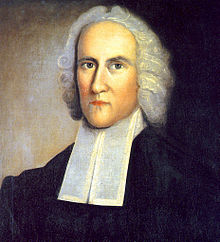It's been a month of Fridays looking at Edwards and the claim that he invented Youth Ministry. We have see that there is no question that
Jonathan Edwards was involved in Youth Ministry. He deliberately sought to minister to young
people who where experiencing a state of prolonged adolescence because of the
changing social system in Northampton.
But is Edwards’s ministry to young people, new and unique? Did he invent it, or was he simply one of
many who began working with young people?
Brekus cites a quote from one of Edwards’s contemporaries William
Williams which stressed the need to convey the truth of scripture to youth in a
way that enables them to ‘conceive of it’ and not simply, ‘learn things by
rote’. She argues this reflects Edwards
view.[1] But in our case it also shows that there were
others around Edwards’s time who were beginning to minister to young people.
Chamberlin notes that Congregational
ministers throughout New England had a longstanding concern for the reform and
conversion of young people,[2] and
Tracy speaks of Jonathan Edwards and his father Timothy as being, ‘clearly
preoccupied with the same issues’, which included young people and their sexual
sins, and the failure of parents to govern their children.[3] Brekus notes that many Puritan ministers had
written catechisms for children but that, ‘few (if any) seem to have held
separate meetings for them. [4] Edwards however did hold special meetings for
children and youth and this seems to have been a new and unique thing.
Next week will bring us to the end of our discussion of Edwards on Youth Ministry and I'll give my opinion as to why I think Edwards indeed may have invented Youth Ministry.



Jonathan Edwards brought a deep theological passion to youth ministry, emphasizing spiritual awakening and conviction. His uniqueness still inspires today, much like discovering a touchless car wash near me offers unexpected modern convenience.
ReplyDelete